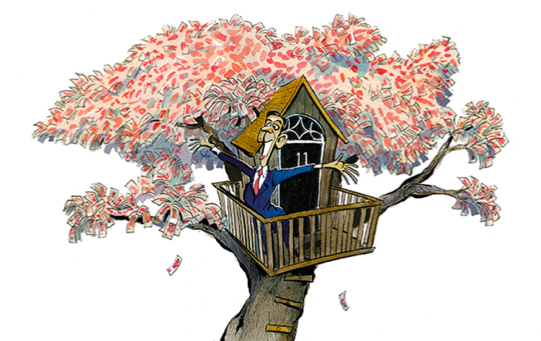A truism is emerging that the Tories’ massive public spending has left Labour politically with nowhere to go. This quasi-social-democrat version of conservatism supposedly leaves all of the opposition’s attacks on the Tories blunted – if there’s a Conservative government spending big, what does Labour have to offer?
There is another way of looking at this, however. The current Chancellor’s spending plans could result in a perfect storm for Labour at the next election – a chance for Starmer to attack the Tories from both the left and the right. From the left, Labour can claim that they will spend money in a more ‘caring and thoughtful’ manner, something their audience is already geared to believe. From the soft right, Starmer’s pitch can be that he will be more efficient with the public’s money, meaning less borrowing and/or taxation in the long run. If Labour can get this bang on, they’ll win the next election.
There is evidence this is already happening. Bridget Phillipson, the shadow Chief Secretary to the Treasury, took an interesting angle in her response to Rishi Sunak’s mini-budget. She wrote to HMRC’s Chief Executive, Jim Harra, asking him to make public any cost-benefit analysis of the Job Retention Bonus. ‘Every penny given to those who don’t need it, when whole sectors of our economy are in trouble, is money not available to support jobs at risk, money not helping the families and firms in desperate need,’ Phillipson said in her letter. This demonstrates where Labour’s attack lines on the economy could lie in the post-Corbyn era – and even more importantly, why they might be successful.
Let’s imagine the perfect way, from a Labour perspective, this could unfold over the next 12 to 24 months. Sunak’s £1,000 job retention scheme fails to have its desired effect and is judged to have been a poor policy by all sides of the political spectrum. Other pledges are either seen to have not been fulfilled or worked out. Unemployment is high while the deficit grows and grows. The idea that Starmer wouldn’t be able to capitalise on this just because he leads a party traditionally known for big public spending is naïve. For a start, there will be growing tension within the Conservative Party on spending, with fiscally conservative Tories getting antsy. This won’t be an existential problem if the Tories are comfortably ahead in the polls; but what happens if Labour draws level or starts polling ahead? A decent opposition, with the public’s ear, would be able to question Tory budgets that their own backbenchers feel uncomfortable with.
Let’s think about this from the opposite angle: how would the Tories attack Labour in a scenario where Conservative spending plans haven’t worked as well as hoped and as a result, Labour is ahead in the polls as the general election approaches? They can’t believably attack Labour on the grounds that they would overspend, since the Tories will have clearly overspent themselves. It becomes very difficult for the Tories to make their traditional ‘custodians of the economy’ argument when that hasn’t been the case. The Conservatives could then be forced to fight the next election on what is perfect ground for the Labour Party: who do you think is more caring, particularly of the less fortunate?
‘Rishinomics’ may be the right thing to do. It may even be the only way to help the economy, given the scale of the Covid crisis. If we had a Labour government they would probably be doing almost exactly the same thing. But that’s not how politics works. If the government has been judged to have made a big enough mistake, a credible opposition can always make the case that they would have done better.
The Conservatives are potentially walking into more traps than they currently realise. They are no longer up against Corbyn and his band of fools – Starmer is playing for keeps. A big spending Conservative Party that looks to price Labour out of the picture seems better on paper than it does in reality. The Tories better hope ‘Rishinomics’ really works.







Comments